Inspired by his wife, Clara, another talented composer and pianist, Schumann left us many beautiful, lyrical and often nostalgic piano pieces and songs (such as "The Poet's Love" and "Scenes from Childhood" cycles) as well as symphonies and concertos.

Schumann: The Genius Who Composed Scenes From Childhood
Robert Schumann was a prominent German composer of the Romantic era. He was famous for his songs and piano pieces depicting the joys and sorrows of love and the beauties of nature.
Life of Robert Schumann
Born in 1810 in Saxony ( part of modern-day Germany), Robert Schumann began life as a law student before moving to Heidelberg and studying piano with Friedrich Wieck.
Robert was one of Wieck's favorite students until the former fell in love with the latter's daughter, Clara. Wieck bitterly opposed any love involvement by Clara, whom he had been training to become a concert pianist. Robert and Clara still ended up marrying in 1840.
Robert looked forward to a career as a concert pianist until he damaged a finger on his right hand, an accident which ended that career. He then turned to writing music criticism and composing.
As a critic, Schumann edited the Neue Zeitschrift für Musik (New Journal of Music) (1834-44). He contributed many lively essays of musical criticism to that journal. While editor, he promoted past composers such as Mozart, Beethoven and Weber and certain contemporary composers such Chopin, Berlioz and Mendelssohn.
1834-39
In the period 1834-39, Schumann wrote mostly works for the piano. These included a group of piano pieces called Carnaval; the Fantasiestücke (Phantasy Pieces), inspired by the stories by E. T. A. Hoffmann); Kinderszenen (Scenes from Childhood), which he gave us some adult reminiscences of his childhood; the Kreisleriana, a work of great emotional range and fantasy; and the Fantasie in C.
Let us pause for a moment and view the following video of Träumerei (Reverie) which comes from Kinderszenen...
Schumann's Träumerei (Reverie)
Pianist Vladimir Horowitz plays to an attentive audience
Life of Robert Schumann (continued)
1840-49
In the next period -- 1840-49 -- Schumann wrote songs and then extended-scale works such as symphonies, concertos and chamber music.
The songs included the Liederkreis, op. 39 (Song Cycle, op. 39), based on Joseph Eichendorff's nature-related poetry) and the Dichterliede (The Poet's Love), based on Heinrich Heine's poems about the loss of love).
His extended-scale works included his Symphony No. 1 in B flat (often known as the "Spring") and the Piano Concerto in A Minor. He also wrote the great Piano Quintet in E flat (op. 44) and incidental music for Byron's Manfred.
1850-56
In the final period of his life -- 1850-56, Schumann worked as the director of the Dusseldorf Orchestra. Unfortunately he found the duties of this job overwhelming. His health and mental stability began to break down and he would complain of "nervous prostration".
He met Johannes Brahms and announced to the world that this was a new composer who would do great things. But Schumann's own music composing began to decline in quality.
In 1854 his mental illness worsened and he experienced hallucinations. He attempted suicide by drowning and was committed to an asylum in Bonn where he died in 1856.
After Robert's death, his widow, Clara, continued to promote his work by giving regular performances of his music and by editing the definitive edition of his works for the famous music publishing house, Breitkopf & Härtel.
Robert Schumann - Manfred Overture, Op. 115
With Leonard Bernstein and NPO
Schumann's Musical Works
Some of Robert Schumann's most famous musical compositions are as follows:
Piano Works
Carnaval (1834)
Fantasie in C (1836)
Fantasiestücke (Phantasy Pieces) (1837)
Kinderszenen (Scenes from Childhood) (1838)
Kreisleriana (1838)
Liederkreis, op. 39 (Song Cycle, op. 39) (1840)
Dichterliebe (The Poet's Love) (1840)
Symphonies
Symphony No. 1 in B flat (the Spring) (1841)
Symphony No. 3 (the Rhenish) (1851)
Other Extended-Scale Works
Piano Quintet in E flat (op. 44) (1842)
Paradise and the Peri (choral work, 1843)
Piano Concerto in A Minor (1845)
Incidental music for Byron's Manfred (1849)
About Strange Lands and People (by Robert Schumann)
Part of the Kinderszenen (Scenes from Childhood) series of piano works
The Legacy of Robert Schumann
Though he wrote a number of symphonies and other extended-scale works, it is the opinion of most critics that Schumann was at his best when writing smaller scale and miniature forms, such as short character pieces for the piano and such as songs.
As a song composer he was one of the greatest and was able to provide beautiful musical accompaniments and counterparts for poems of some of his era's greatest poets such as Eichendorff and Heine.
He was also among the greatest of Germany's romantic composers. His works expressed a world of dreams and of anguish, of fear and of hope, and of the magical and often supernatural world of the night and of moonlight.
Dichterliebe (The Poet's Love)
Music: Robert Schumann. Text: Heinrich Heine.
Schumann on the Web
Robert Schumann Quotes
What Schumann said and what others have said about him.
Robert Schumann
Robert Schumann bio, songs, credits, awards related and video information.
More Romantic Music
You might also like
Beethoven: The Genius Who Composed The Moonlight SonataLudwig van Beethoven is probably the best known composer of classical music. ...
Music Book Review: Handel's Bestiary by Donna Leon, With CD of...Handel's Bestiary by mystery writer Donna Leon brings together a CD of one an...
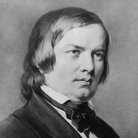




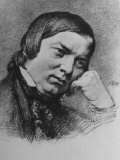
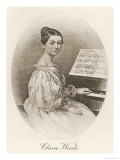
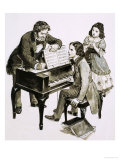




 Ancient Rome: History and Heritageon 02/28/2012
Ancient Rome: History and Heritageon 02/28/2012
 Ancient Greece: History and Heritageon 10/14/2012
Ancient Greece: History and Heritageon 10/14/2012
 Mendelssohn: The Genius Who Wrote The Hebrides Overtureon 03/04/2012
Mendelssohn: The Genius Who Wrote The Hebrides Overtureon 03/04/2012

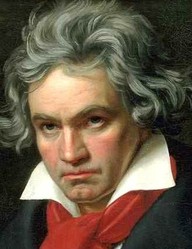

Comments
I love the whole romantic period of piano music. I'm more of a schubert fan than a Schumann one - but I agree with Tolovaj - they're both overlooked compared to the "big" names.
@Tolovaj: Schumann -- one you hear his music (or, even better, once you play his music), you will never forget it!
Robert Schumann is in my opinion underrated author. Everybody knows about Chopin, Bach, Beethoven, Wagner and Mozart, but his work is not as known as theirs, maybe because he was not so eccentric, or his private life was not messy enough and thus not so interesting to the public...
Thanks for introducing the work of one of the greatest romantic composers of all times!